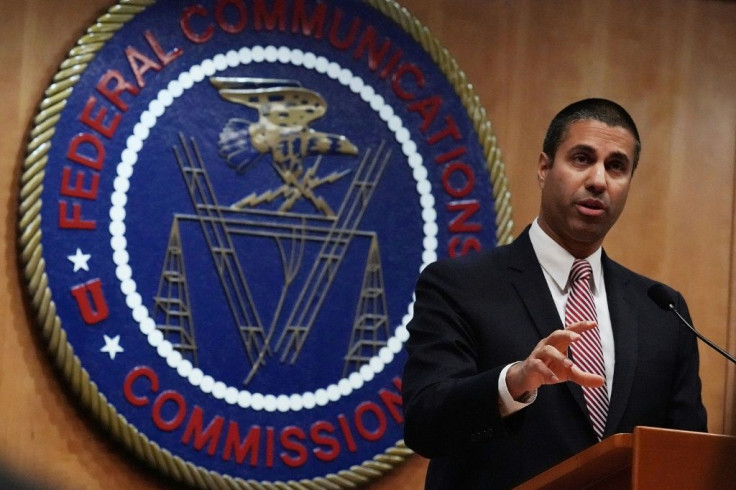Why A Top Republican Is Stepping Down Before Biden's Inauguration
Ajit Pai, who drew scorn for dismantling net neutrality regulations, announced Monday that he will step down as FCC chairman once President-elect Joe Biden has been inaugurated.
Pai’s term was slated to end in June 2021. It's a tradition for the FCC chair to step down when an incoming administration from the opposing party is set to take over.
“It has been the honor of a lifetime to serve at the Federal Communications Commission, including as Chairman of the FCC over the past four years,” Pai said in a statement. “I am grateful to President Trump for giving me the opportunity to lead the agency in 2017, to President Obama for appointing me as a Commissioner in 2012, and to Senate Majority Leader McConnell and the Senate for twice confirming me. To be the first Asian-American to chair the FCC has been a particular privilege. As I often say: only in America.”
Pai, 47, was appointed chairman in January 2017. He was nominated to be a commissioner in 2011 by President Barack Obama and then elevated to the chairman position by President Donald Trump.
Pai drew attention in December 2017 when the FCC revoked net neutrality rules implemented by the Obama administration. Those rules blocked service providers from tampering with competitors' content. The net neutrality repeal led to several bomb threats and threats to Pai and his family.
Pai's departure leaves Republicans scrambling as they try to confirm another conservative FCC nominee. The decision to leave on Jan. 20 ends hopes that a holdover Republican majority at the FCC could have temporarily stymied changes by the incoming Biden administration, which is certain to bring back net neutrality regulations.
The agency will have a 2-to-1 Democratic majority on Jan. 20 unless the Republican-majority Senate confirms Republican Nathan Simington, whose nomination will be considered Dec. 2 by the Commerce Committee.
Pai will also still be the chair on Jan. 19 when the Supreme Court hears oral arguments on the agency's rollback of media ownership rules.
Pai's tenure has been heavily criticized. He oversaw the merger in November 2019 between T-Mobile and Sprint, which he called “a unique opportunity to speed up the deployment of 5G throughout the United States.” At the time of the merger, Democratic presidential candidate Sen. Bernie Sanders immediately vowed to break it up as president.
As he cleared up airways for 5G wireless services, Pai's regulations often drew criticism from the Pentagon and the departments of Commerce and Transportation.
In August 2018, he was cleared in an FCC internal investigation over whether he gave preferential treatment to the right-leaning Sinclair Broadcast Group in its efforts to merge with Tribune Media in a deal that was worth nearly $4 billion.
Pai in a statement applauded his term and called his administration “the most transparent FCC in history.”
"Together, we’ve delivered for the American people over the past four years: closing the digital divide; promoting innovation and competition, from 5G on the ground to broadband from space; protecting consumers, and advancing public safety," Pai said.

© Copyright IBTimes 2025. All rights reserved.





















